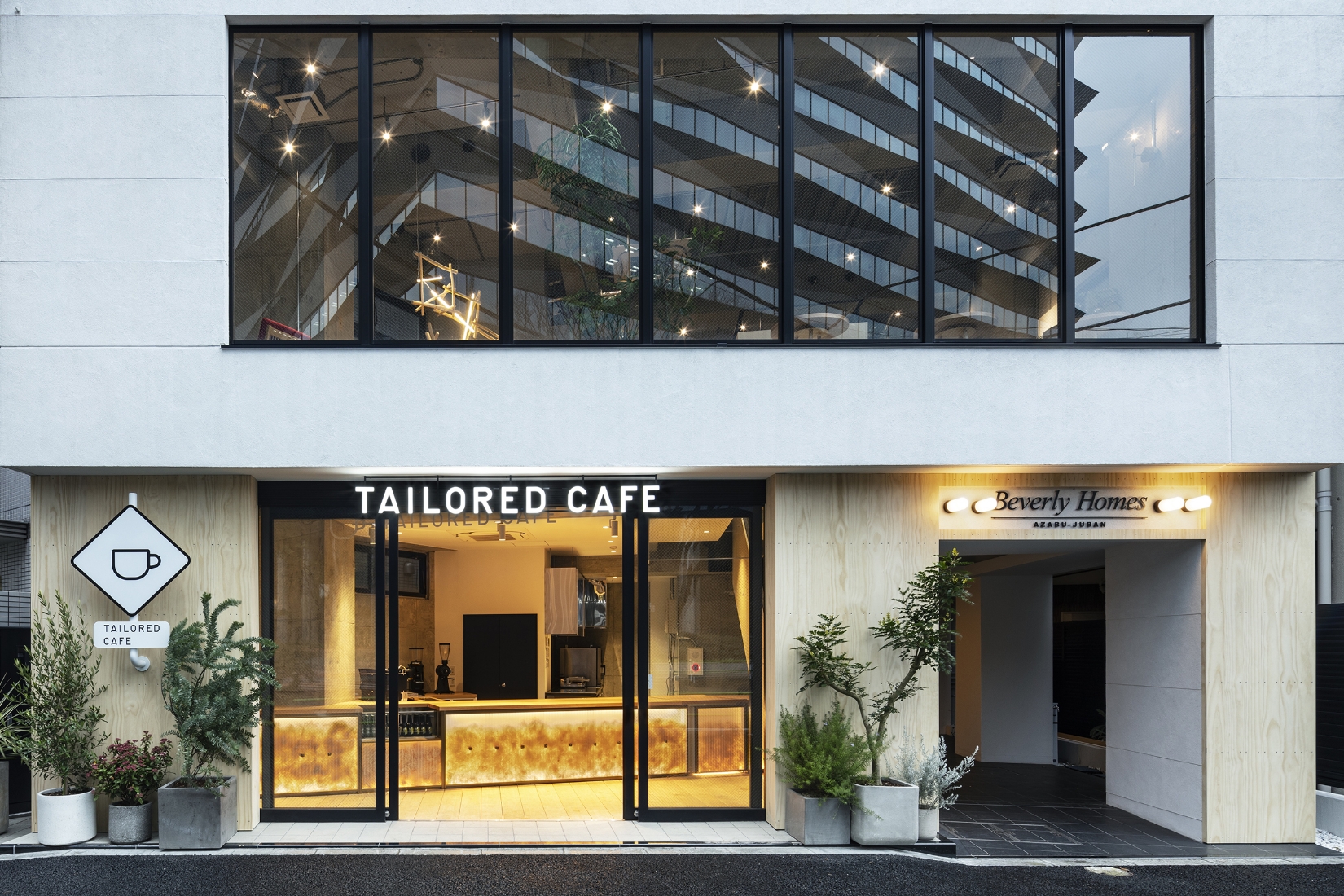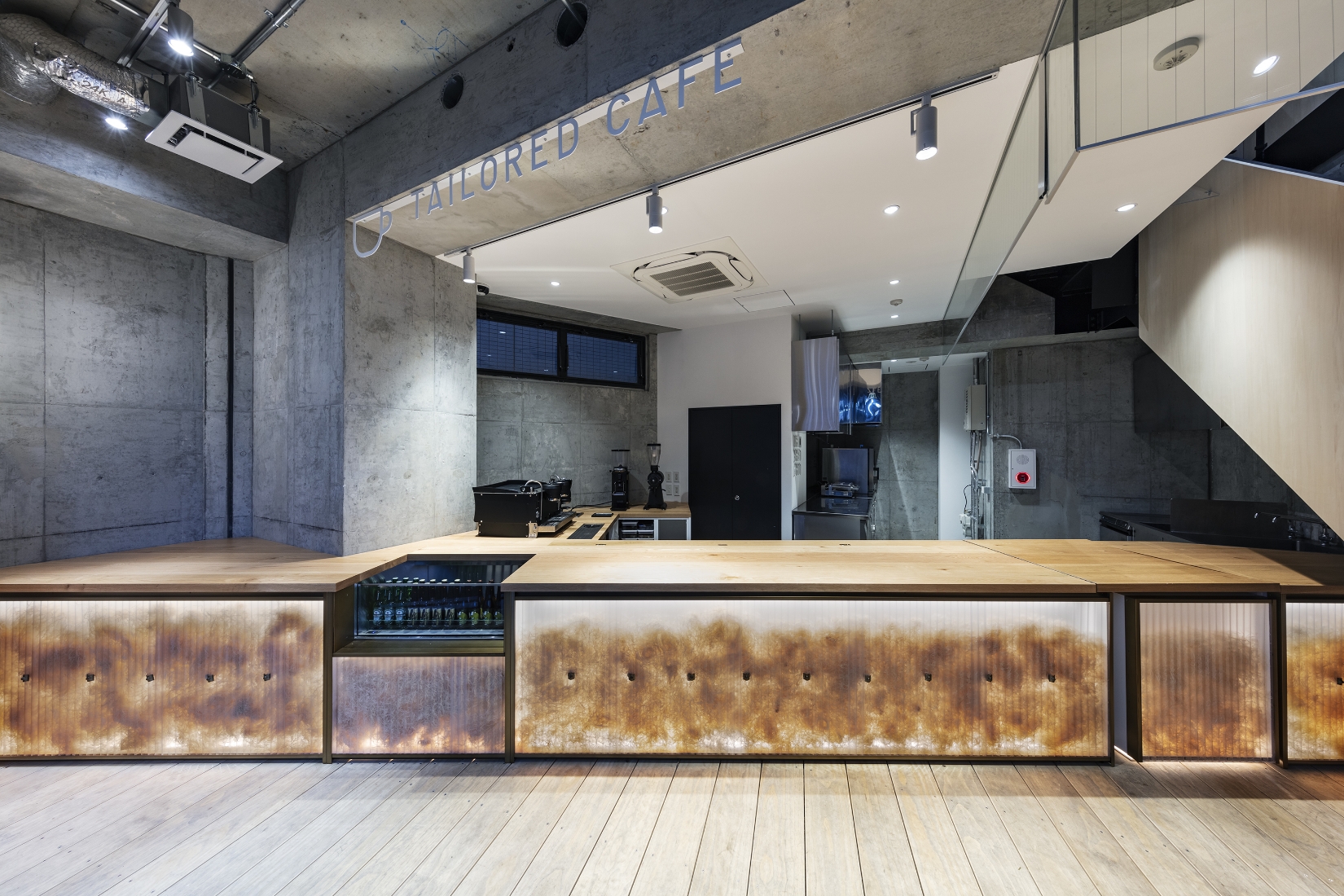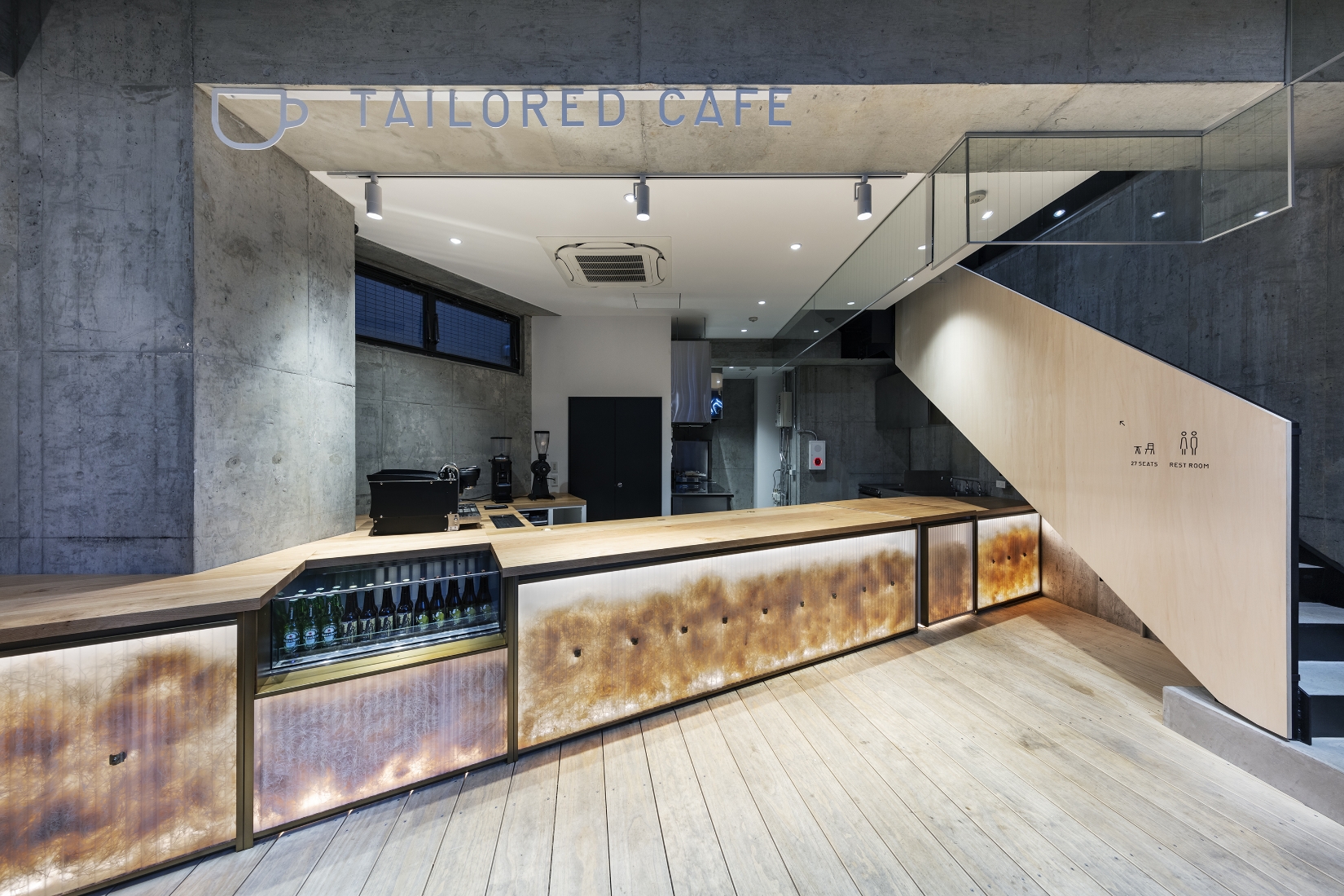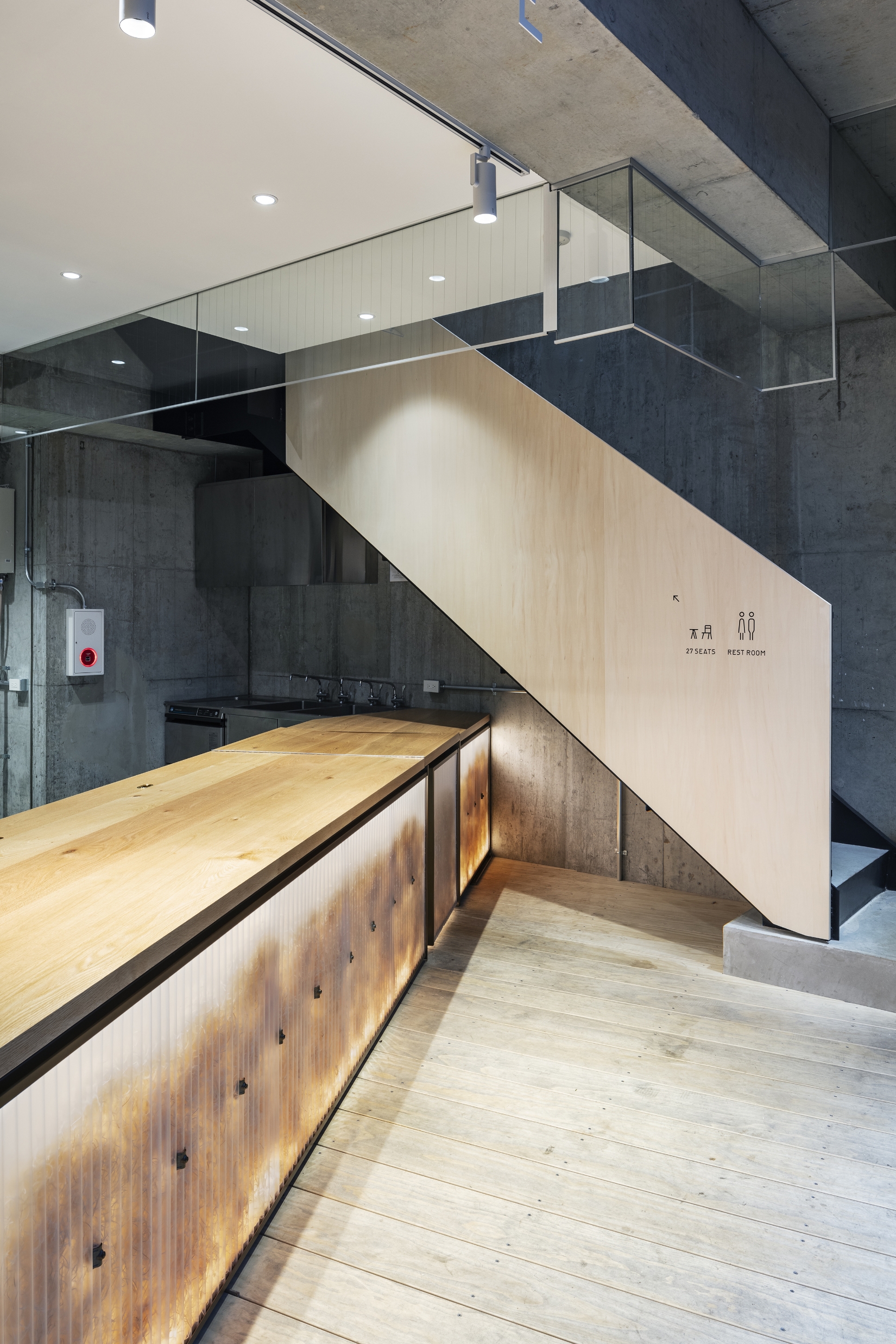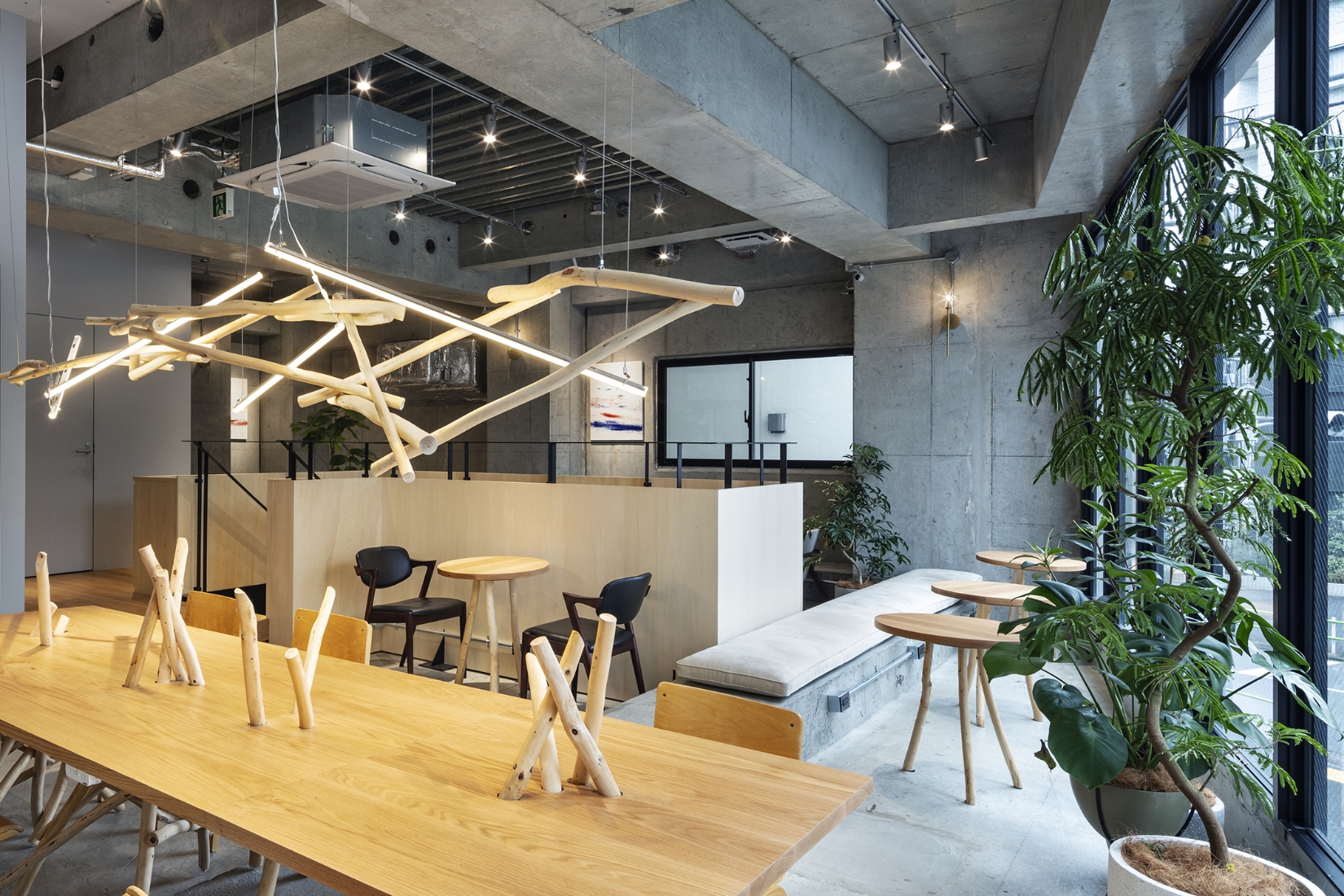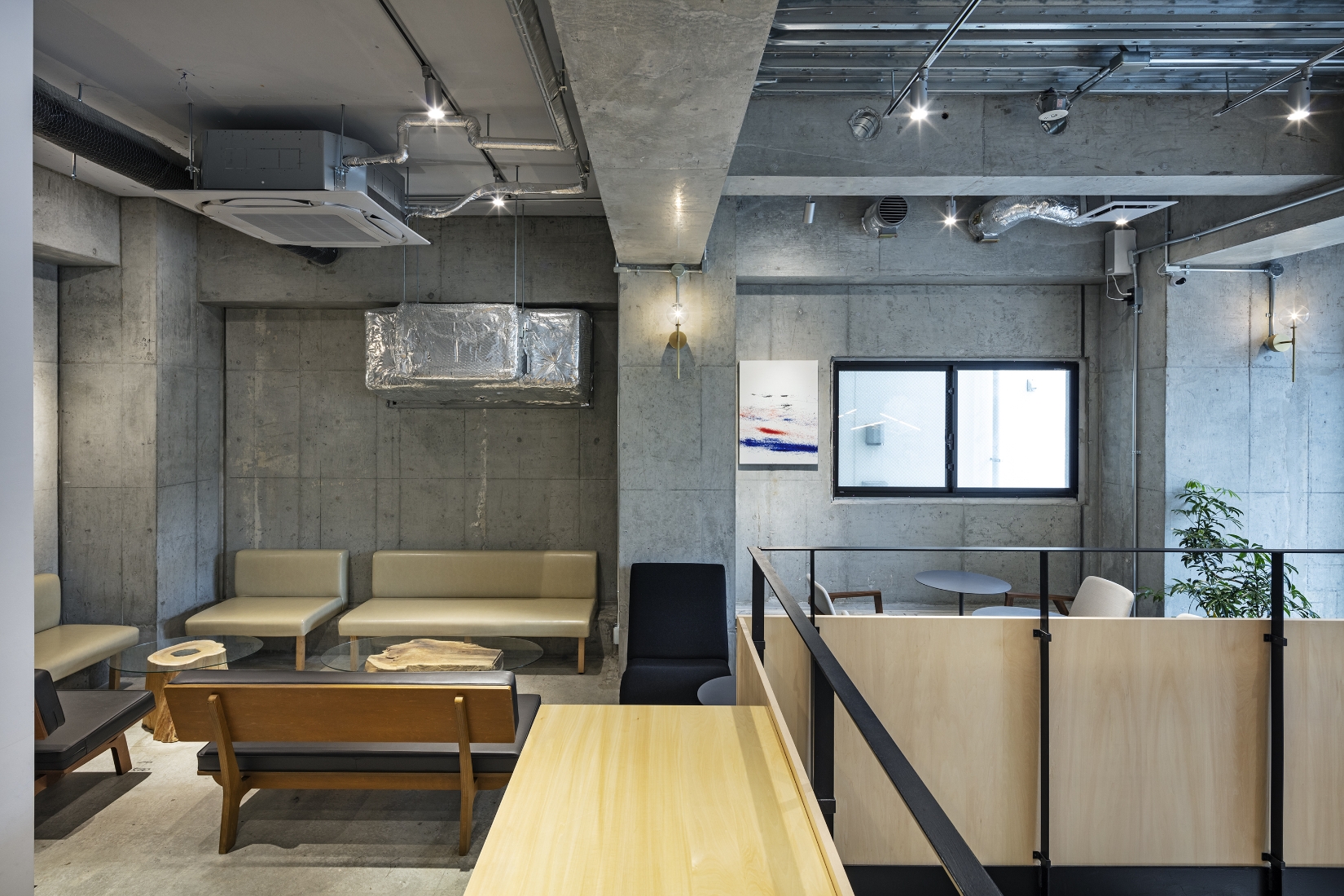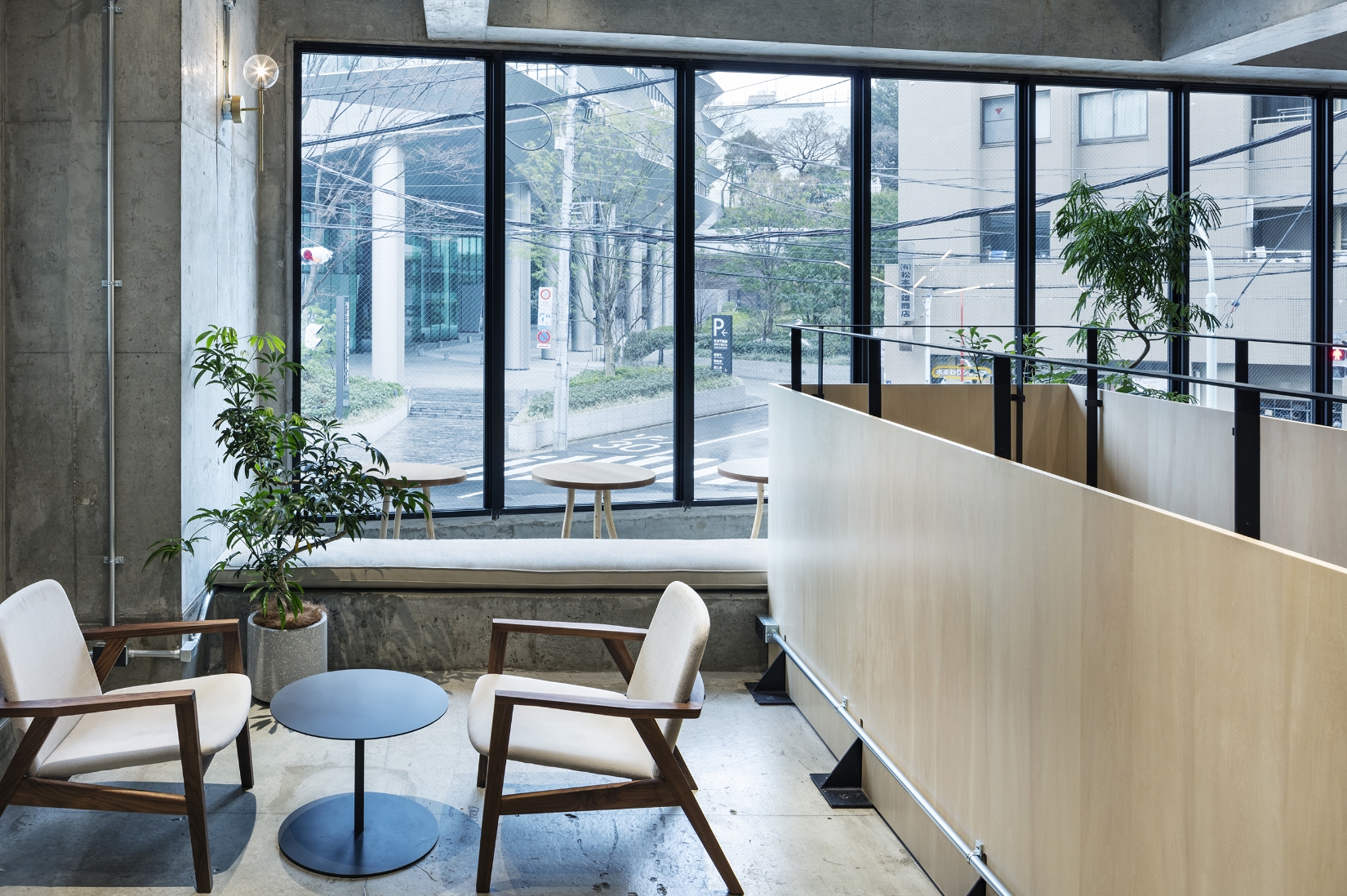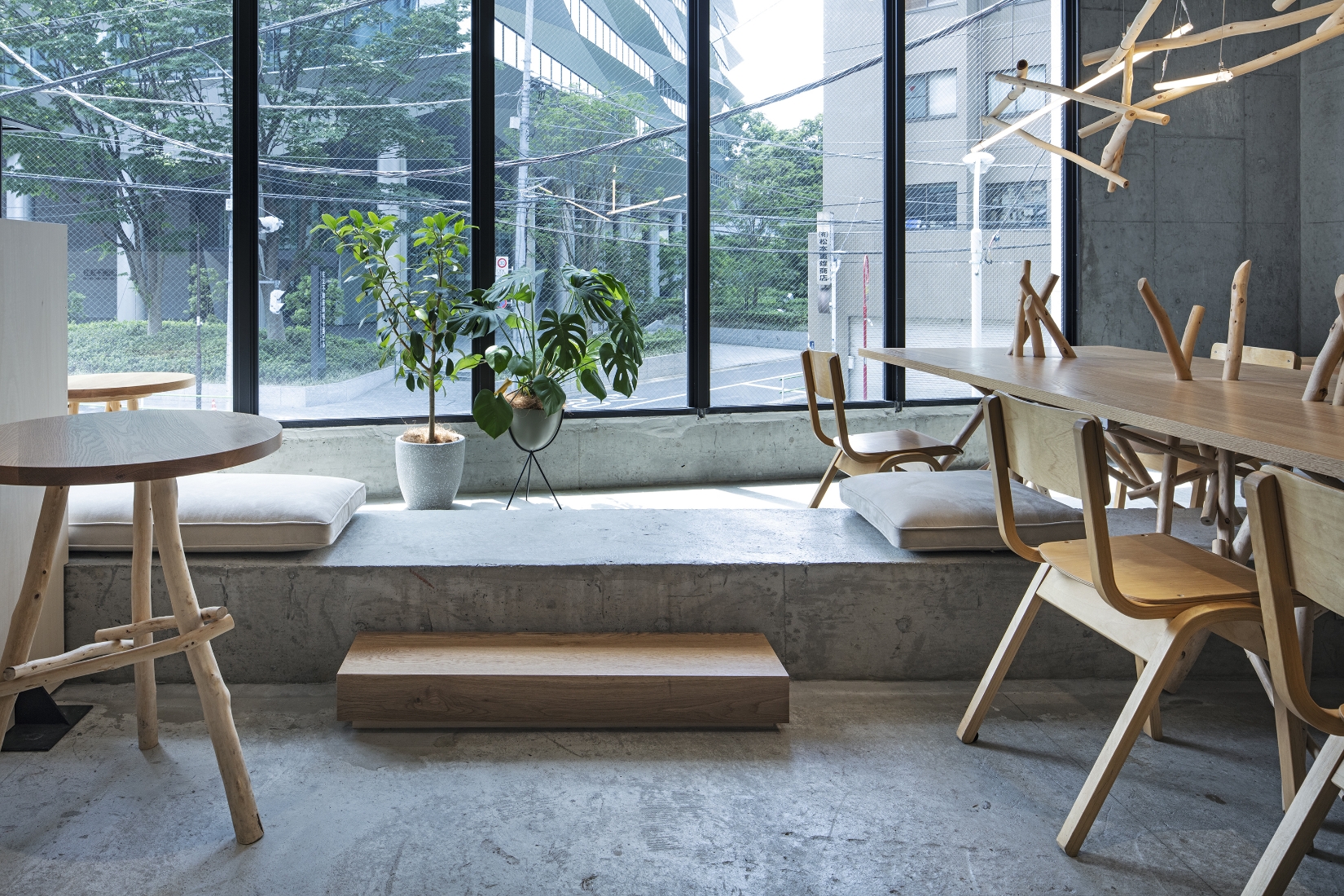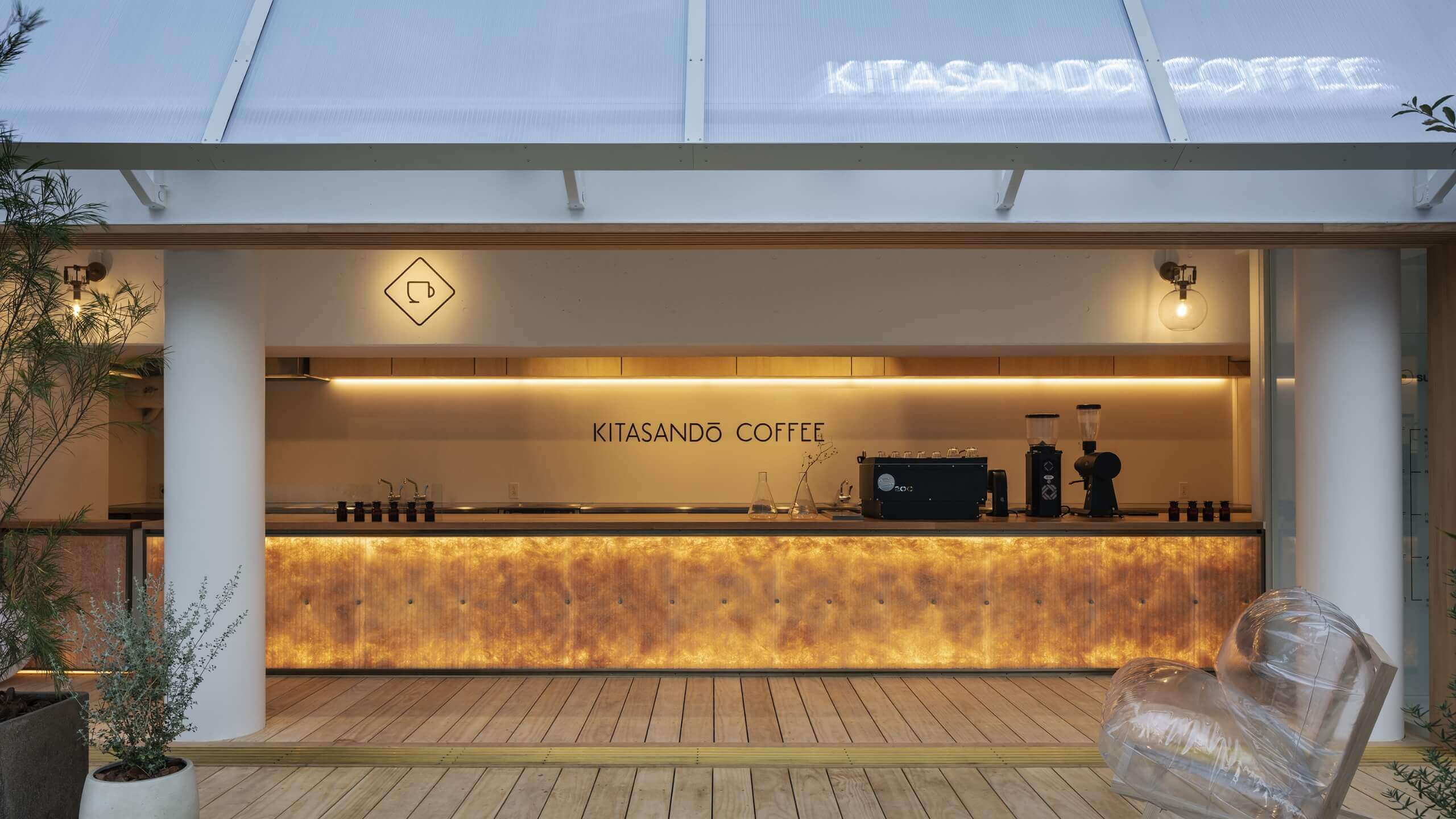
CONCEPT
多摩の山に直接足を運び、林業家から通常市場に出回らない「枝」や「根っこ」を買い付け、自然乾燥させてつくられた素材によってカフェの内装を設計した。 林業家とデザイナーが直接協働することで、流通コストを削減しつつ、依頼主の直接的な意見を山林から考案することに挑戦した。また荒々しい天然素材を繊細にプロダクト化するため造船業から派生した高い木材加工技術もつ徳島の家具職人と協働し、スチールやガラス、照明、コンクリートといった異素材とのハイブリッドを実現している。プロダクトそのものではなく産業のボーダーを無くしたデザインフローを提案することで、「決まったかたちのないデザイン」を目指した。天然素材がどうしても抱える「あばれ」や「くるい」と呼ばれる不安定さをプロダクトのスペシャリティとすることで、捨てられていた価値を最大化するとともに、木材個性に対するクレームを無用化する新たな可能性を生み出している。
The interior of this café was designed using materials sourced directly from the mountains of Tama, where foresters supplied “branches” and “roots” that would not normally reach the market, left to air-dry naturally. By fostering direct collaboration between foresters and designers, the project reduced distribution costs while allowing the client’s ideas to be considered starting from the forest itself.
To transform these raw and irregular natural materials into refined products, the project also collaborated with skilled furniture craftsmen from Tokushima, whose advanced woodworking techniques derive from the ship building industry. Through this, hybrids with steel, glass, lighting, and concrete were achieved.
Rather than focusing solely on the finished product, the aim was to propose a design flow that dissolves the borders between industries, striving for a “design without a fixed form.” By embracing the instability of natural materials known as abare (wildness) or kurui (warping) as a defining specialty, the project maximized the value of what was once discarded, creating new possibilities where complaints about material irregularities become unnecessary.
